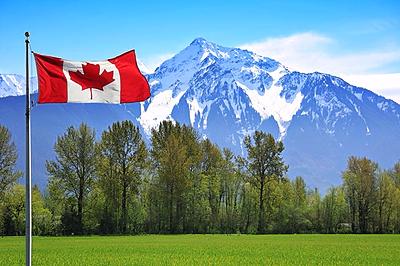- Understanding the Basics: Before you arrive, familiarize yourself with basic information about Canada. Learn about its provinces, territories, and major cities, as well as the cultural diversity that defines the nation. Knowing the official languages (English and French) and understanding the currency (Canadian Dollar) will prove beneficial.
- Documentation and Visas: Ensure you have all the necessary travel documents and visas before boarding your flight. Depending on your purpose of visit, you may need a tourist visa, work permit, or study permit. Check the official website of Immigration, Refugees and Citizenship Canada for accurate and up-to-date information.
- Health Insurance: Canadian healthcare is excellent, but it's crucial to have health insurance, at least during your initial days. Some provinces may have a waiting period before you're eligible for public health coverage. Research private health insurance options to bridge this gap and protect yourself from unexpected medical expenses.
- Climate and Clothing: Canada experiences diverse climates, from chilly winters to warm summers. Pack accordingly, taking into account the weather conditions of the region you'll be visiting. Don't forget essentials like a good winter coat, waterproof boots, and layers to stay comfortable year-round.
- Cultural Etiquette: Familiarize yourself with Canadian cultural norms and etiquette. Canadians are generally polite and respectful, and understanding social customs will help you integrate more smoothly into your new surroundings. Learn about the importance of multiculturalism and diversity in Canadian society.
- Finances: Inform your bank about your travel dates to avoid any disruptions to your financial transactions. Familiarize yourself with the currency and banking system in Canada. It's also advisable to have a mix of payment options, including credit cards and some Canadian dollars in cash.
- Transportation: Canada is vast, and transportation options vary by region. Research the local public transportation system, and consider obtaining a transportation card for convenience. If you plan on driving, understand the traffic rules and regulations, and ensure you have the appropriate licenses and permits.
- Accommodation: Arrange your accommodation in advance, especially if you're arriving in a busy season. Options range from hotels and hostels to short-term rentals and homestays. Choose accommodation based on your preferences, budget, and the location's proximity to your intended activities.
- Networking and Community Engagement: Connect with local communities and expat groups to build a support system. Attend events, join social media groups, and participate in activities to meet new people and learn more about the Canadian way of life. Building a network will contribute to a more enriching experience.
- Emergency Preparedness: Have emergency contacts saved, including the local emergency number (911), and keep important documents in a secure, easily accessible place. Familiarize yourself with the nearest hospital, police station, and your country's embassy or consulate.
Mon - Sat 9.00 - 18.00
9278 120th Street, Unit 201, Surrey, BC, V3V 4B8 Canada
+1.604-288-7080
Blog Details
Home
Blog Details

1st, Dec 2023 / zwm_admin
Embarking on your initial journey to Canada as a newcomer? Discover how you can ensure a prepared arrival with these essential tips.
Embarking on a journey to a new country is an exciting and sometimes overwhelming experience, especially for first-time visitors to Canada. Whether you're coming for leisure, work, or to start a new chapter in your life, thorough preparation is key to ensuring a smooth transition. In this guide, we'll walk you through essential tips and information to help you arrive prepared and make the most of your initial experience in the Great White North.
